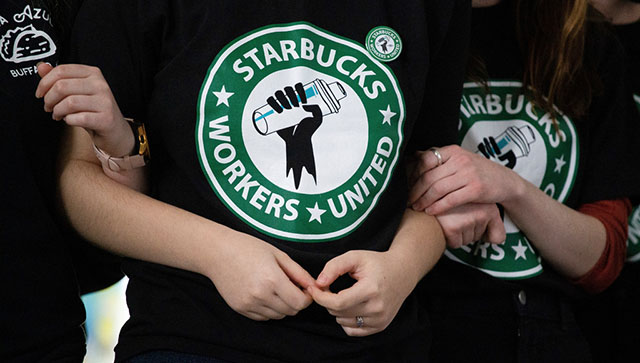In the world of coffee aficionados, preferences often revolve around the choice between hot or cold, perhaps with a dash of cinnamon. However, for Starbucks, the renowned coffee giant, the recent challenges it faces extend beyond the realm of flavour preferences and delve into the complex territory of geopolitics.
A costly brew Starbucks, a behemoth in the coffee industry, has recently witnessed a substantial blow to its financial standing. The company’s value plummeted by a staggering $11 billion, erasing nearly 10 per cent of its total worth. This raises the question: What led to this significant loss? The decline in Starbucks’ value cannot be attributed to the taste of its holiday flavours or customer fatigue with pumpkin spice lattes. Surprisingly, the root cause lies in a realm far from coffee cups and seasonal blends. It appears that Starbucks found itself entangled in geopolitical tensions following the Israel-Hamas conflict. In the wake of the war, Starbucks, like many companies, expressed support for Israel. However, this stance didn’t sit well in West Asia, leading to repercussions in specific regions, such as Egypt. In November, reports surfaced of Starbucks in Egypt laying off workers due to a severe decline in customer traffic, a direct consequence of the geopolitical fallout. Brewing unrest within Another layer of complexity emerged as Starbucks workers united under the banner of Starbucks Workers United. This union openly declared solidarity with Palestine, a move that sparked controversy and calls for a boycott. Despite Starbucks distancing itself from these comments, the damage was done. Moreover, discontent brewed among Starbucks workers themselves, leading to strikes in 200 stores across America. Employees expressed dissatisfaction with their working conditions, citing issues such as inadequate pay, understaffing and insufficient rights. The culmination of these factors resulted in sluggish sales during the holiday season. “So basically, Starbucks puts these promotions on us that is like buy one, get one free drinks or double star days. And they put more and more work on the actual baristas and the workers without giving us any ability or control to turn off mobile orders, which puts such a stress on us,” said Starbucks worker Juniper Schweitzer. Another Starbucks worker Moonie Atchley, “I mean, I was I was almost homeless last week. Even though I work at a store that supposedly pays better, they’ve been withholding card tip from us. So the amount of money you make is not enough to pay rent. It’s not enough to get groceries.” Financial downturn Starbucks’ financial troubles are further evident in its stock performance. The company has experienced a decline in its stocks for 12 consecutive market sessions, marking the longest-ever recorded streak since its public debut in 1992. Currently hovering around $95, down from a yearly high of $114, the coffee giant faces a challenging path to recovery. In a surprising twist, Starbucks, known for offering a simple cup of coffee, now finds itself in the midst of political controversies and financial setbacks. The once-uncomplicated act of sipping a Starbucks beverage has evolved into a political statement. Can Starbucks perk up? As Starbucks navigates these stormy waters, the question arises: Can the company recover from this multifaceted crisis? While the CEO remains optimistic, the numbers tell a different story. The challenges faced by Starbucks serve as a reminder that, in today’s world, even a cup of coffee can become a symbol of political discourse, leaving the company’s caffeinated dreams in a state of uncertainty. Views expressed in the above piece are personal and solely that of the author. They do not necessarily reflect Firstpost’s views. Read all the Latest News , Trending News , Cricket News , Bollywood News , India News and Entertainment News here. Follow us on Facebook, Twitter and Instagram.


)

)
)
)
)
)
)
)
)



